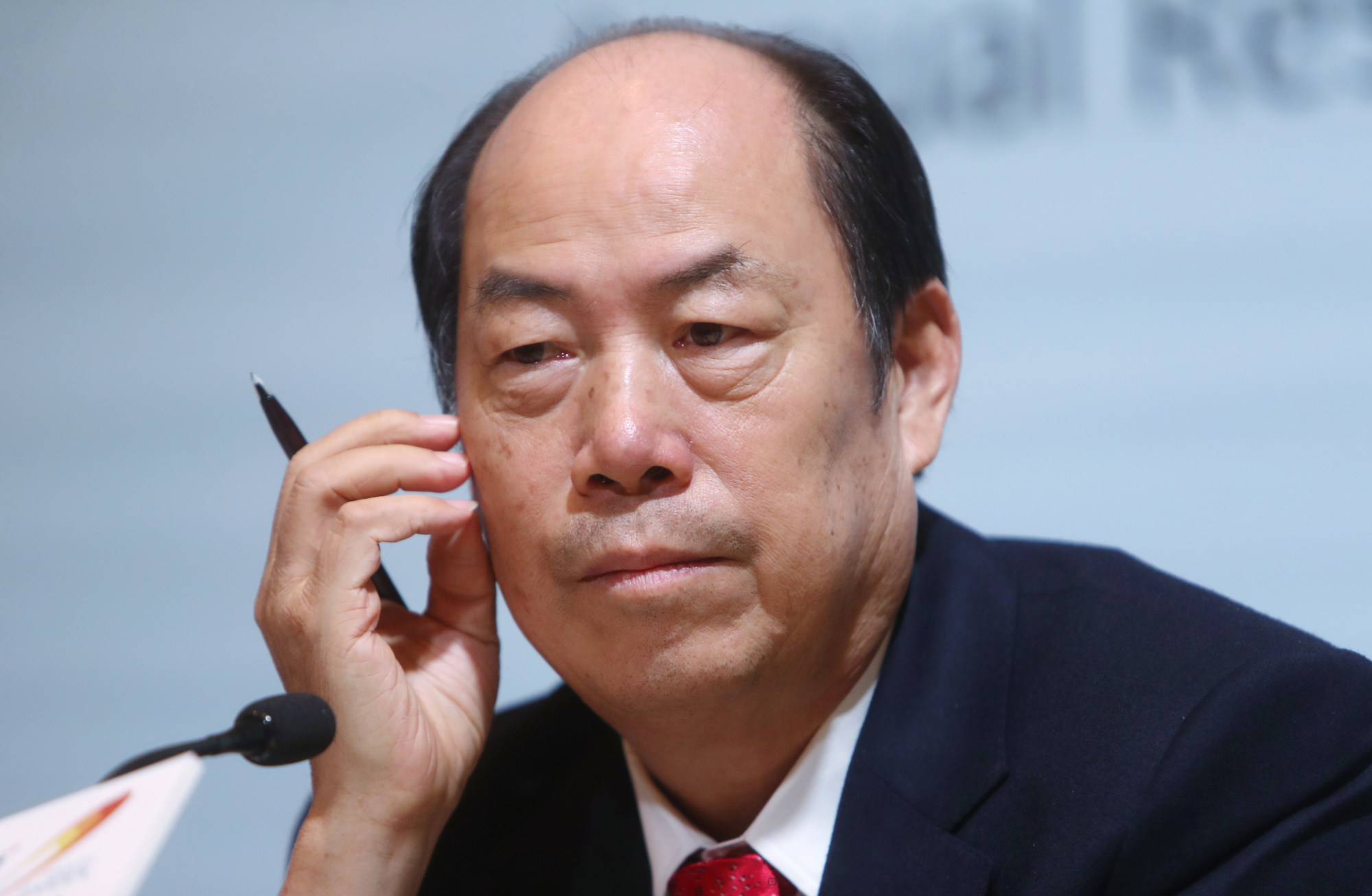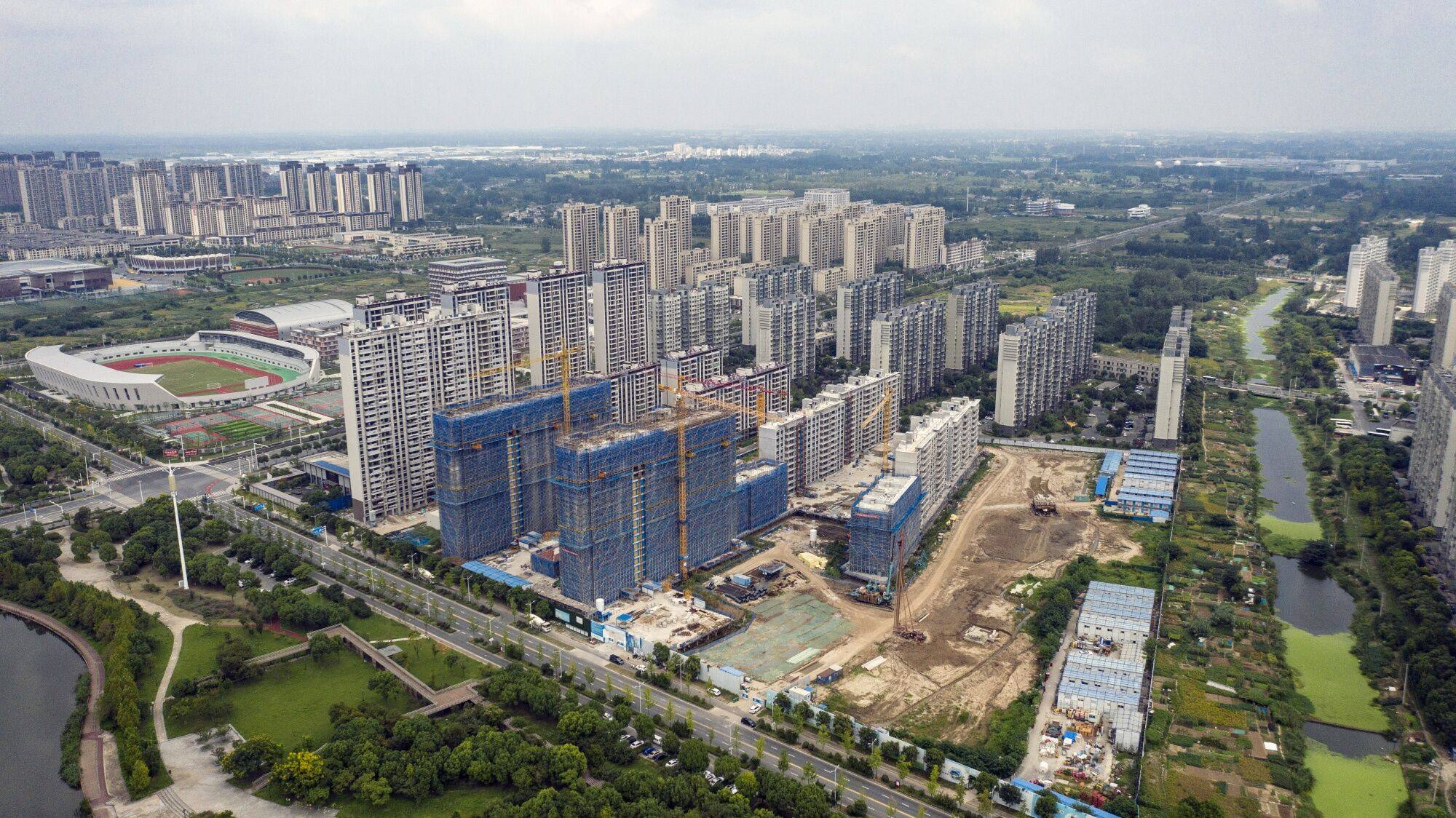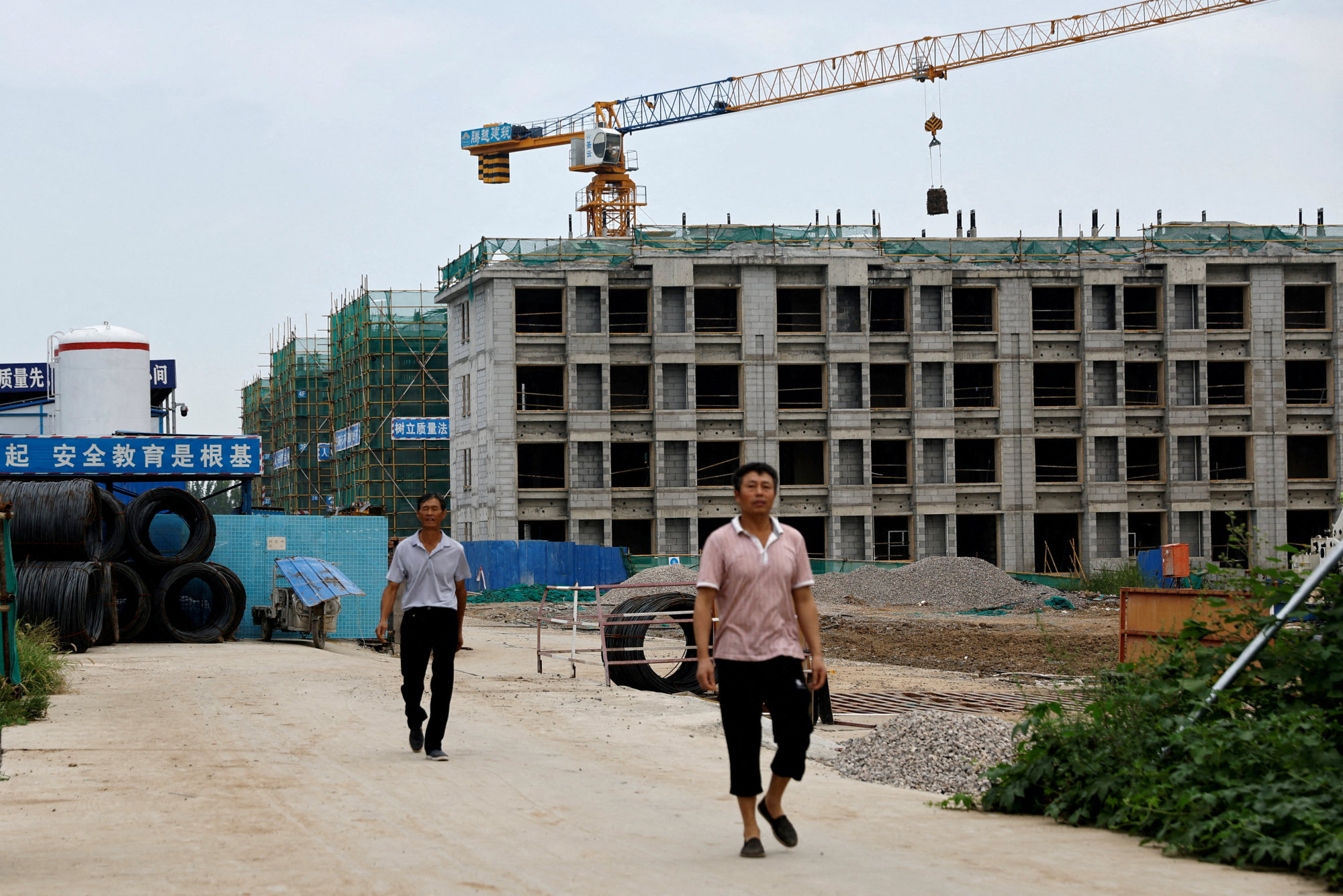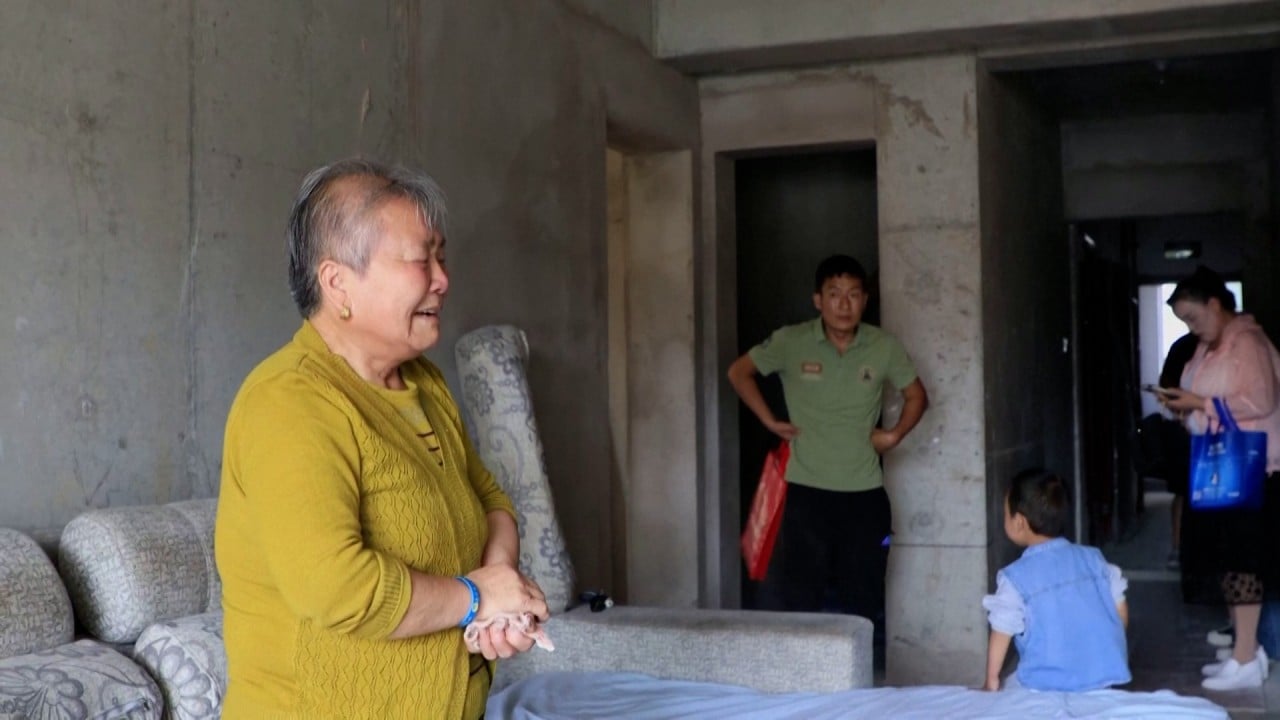
China property crisis: Country Garden faces reckoning as sluggish economy, bets on smaller cities unravel
- Beleaguered Country Garden faces US$14.9 billion in debt maturity in the next year, as it tries to avoid becoming latest Chinese developer to default
- Country Garden bet big on future growth in China’s tier 3 and tier 4 cities, where overbuilding and declining population now threaten property prices
As Country Garden Holdings founder Yang Guoqiang prepares to celebrate his 69th birthday next month, the company he started more than three decades ago is mired in the biggest crisis in its history.
However, it reportedly missed an interest payment on another US-dollar denominated bond on September 17, and still faces 109 billion yuan (US$14.9 billion) in bank loans and bonds that are set to come due in the next 12 months.
But, how did Country Garden, the biggest Chinese home builder by sales between 2017 and 2022, and a company known for its conservative debt management when compared with its peers, find itself in such dire straits?
Its strategy of focusing on lower-tier cities in China – a one-time strength that propelled it to the top – has become an albatross as the nation’s housing market faces a potential structural decline, according to analysts.
“The company will be facing serious challenges in its business operations in a falling market,” said Edward Chan, director of corporate ratings at S&P Global Ratings.
“Even if it does not miss any repayments in future, it will be hard for the company to resume normal operations as it may encounter enormous difficulty in selling homes as homebuyers may worry about its ability to complete projects.”
To understand why Country Garden focused on smaller cities rather than Beijing or Shanghai, one needs to look to its roots.
Founder Yang, who had little formal education and reportedly did not own his first pair of shoes until he was 17, got into property development by chance.
He joined a county-level construction firm in his twenties, working his way up to become the general manager in the early 1990s. Faced with closure by the local government, he took the firm private and, soon after, took on the company’s first residential development project after a major client went bankrupt.

In keeping with its founder’s humble background, the company focused on China’s smaller cities, with much of its initial footprint in its home province of Guangdong.
When Country Garden went public in Hong Kong in 2007, his daughter, Yang Huiyan, became China’s richest person at the age of 26, with a reported wealth at the time of US$16.2 billion, according to Forbes. Yang was named the company’s sole chairman in March after her father retired. He remains a special adviser to the company.
The company further benefited from China’s “shantytown redevelopment” policy, which razed and replaced subpar housing across China beginning in 2008 and offered subsidies for residents in lower-tier cities to buy new homes.
Country Garden’s annual profit grew by 24 times in the first decade of the programme and the company extended its footprint outside Guangdong to every province in China. By that time, it was widely seen as a bellwether for mass-market housing in China.
However, trouble loomed on the horizon for China’s developers after years of taking on massive debt to fuel a breakneck pace of building across the country and to expand beyond real estate into areas such as robotics and electric vehicles.
With Beijing adopting the “three red lines” policy in 2020 in an effort to deleverage the property sector, it became much harder for some of the country’s biggest developers to borrow money to buy land, pay suppliers and finish projects.
By the end of 2021, Evergrande and several major developers had defaulted on their offshore debt and confidence in the property sector was at a low.
Despite a 23 per cent drop in profit in 2021, Country Garden fared better than many of its peers in what it described as a period of “turbulences and upheavals”, cooling sales and tighter liquidity in the sector. That year, 68 per cent of its revenue came from tier 3 and tier 4 cities in China, rather than cities such as Beijing or Shanghai.
Worst is yet to come as markets brace for Country Garden’s debt fallout
At the time, bonds and bank loans only accounted for about 19 per cent of its 1.6 trillion yuan in total liabilities, with 43 per cent related to pre-sold properties it was obliged to deliver in the next year.
Unlike more indebted peers, Country Garden was viewed by many investors as stable; it was one of a handful of developers to receive a line of credit from state-owned banks when Beijing moved to support the sector last November.
Trouble did not truly surface at Country Garden until the spring of 2022, about four months after Evergrande defaulted on its first bond.
Country Garden saw its sales slide 42 per cent in March of that year, drop a further 57 per cent in April and fall 50 per cent in May as developers faced pressure from weakening expectations, sluggish sales and falling property prices.
By the end of the year, Country Garden’s contracted sales had fallen 36 per cent to 357.5 billion yuan and it reported its first annual loss since it went public 16 years ago, saying 2022 was a “year like no other” and the nation’s property sector was experiencing a “harsh winter”.
Country Garden lost as much as HK$151 billion (US$19 billion) of market value since the stock peaked last year on January 11 before its cash crunch became public in August.
There was hope the sector could recover after Beijing abandoned zero-Covid policies and lifted social distancing curbs nationwide earlier this year, with home sales of the top 100 developers hitting 660.9 billion yuan in March, versus 511.5 billion yuan a year earlier.
“There was a very sharp deceleration or actual decline in home sales in many cities in April, which explains why some companies like Country Garden ended up in trouble,” said Gary Ng, a senior economist at Natixis Asia-Pacific.
To avoid further losses, Country Garden said it would change its organisational structure and “sharpen its focus on first- and second-tier cities as well as the core districts of third- and fourth-tier cities” when it reported its annual results in March.

Third and fourth tier cities account for a large proportion of China’s economy – as much as 60 per cent of gross domestic product – and have been a big focus for Country Garden and other developers in the past decade. But they are facing challenges, among them a slowing economy and an ageing and declining population.
“Despite projections of declining population, and significant price declines (according to our estimates), a disproportionate share of construction continues to be concentrated in tier 3 cities. Whereas real estate construction may have helped fuel growth from 2008 to 2018, our analysis suggests that this has not been the case after 2018.”
Tier 3 cities, which accounted for about 80 per cent of construction in China three years ago, saw an almost 20 per cent drop in residential housing prices from early 2021 to mid-2022, with overall housing valuations in these cities likely dropping by 15 per cent to 162 trillion yuan in mid-2022, according to the paper.
‘A ghost town’: Malaysia’s Country Garden Forest City struggles to sell units
Mo Bin, president of Country Garden, vowed at the annual results briefing earlier this year that the company would focus on the core cities and increase its investment portfolio and land bank in the tier 1 cities step by step.
At the end of last year, about 42 per cent of its gross floor area for future development was located in provinces away from tier 1 or tier 2 cities. Previously, tier 3 and tier 4 cities had exceeded 62 per cent of the company’s land bank.
As part of its efforts to pivot, Country Garden restarted bidding for land in April this year, targeting tier 1 and tier 2 cities after nearly 18 months away from the market. So far, it has acquired six plots worth 5.8 billion yuan, according to a May press release.
“But the adjustment is too little, too late,” said Lawrence Lu, senior director and analytical manager of S&P Global Rating’s China properties and conglomerates team, noting the company lacks sufficient cash flow to buy land amid plunging contracted sales.

In Country Garden’s interim report in August, the company said it “had failed to grasp the potential risks associated with its disproportionately large investment” in lower-tier cities.
“If Country Garden survives, it will be a much smaller company,” said Andrew Collier, managing director of Orient Capital Research and the author of Shadow Banking and the Rise of Capitalism in China. “And, there will be a lot of investors that will lose significant amounts of money.”
On top of that, Country Garden is still trying to deliver homes it has already sold, completing nearly 700,000 pre-sold units last year and another 278,000 in the first half of this year.
By comparison, China Vanke, China’s second largest developer, delivered about 280,000 pre-sold homes in 2022 and 128,000 in the first half of 2023.
Country Garden posts US$6.72 billion interim loss as problems mount
The pressure to deliver, together with the plunging home sales, especially in the lower-tier cities, has exacerbated Country Garden’s cash flow problems, S&P’s Chan said.
New home prices in Chinese cities fell at a faster pace in August than in July, National Bureau of Statistics data showed, with only 17 of the 70 cities tracked registering price increases last month, compared with 20 in July.
The gloomy performance has spurred credit rating agencies, including Moody’s Investors Service and Fitch Rating, to cut their outlook in recent days for contracted home sales this year.
“Lower-tier cities, particularly in weak economic regions, will bear the brunt of the expected sales decline amid continuing population outflow,” according to Moody’s, which sees contracted sales falling about 5 per cent in the next six to 12 months.
The operating environment, particularly in tier 3 and tier 4 cities, could remain challenging even as the Chinese government moves to support the sector, according to investment management firm Pimco.
“It’s more about real demand and if they have population growth and how the demographics work,” Stephen Chang, a Pimco portfolio manager in Hong Kong, said at the company’s media summit in London on September 13. “Those will be quite challenging for some time … We think this cycle might last for a few more years.”
Additional reporting by Peggy Sito



